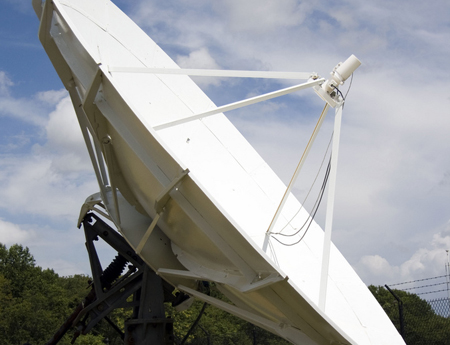Senate Commerce STELA Update Includes Local Choice

The smarter way to stay on top of broadcasting and cable industry. Sign up below
You are now subscribed
Your newsletter sign-up was successful
According to a draft of a Senate Commerce Committee version of satellite license reauthorization, the bill has a new name, STAVRA (the Satellite Television Access and Viewer Rights Act) and a bunch of retrans elements that broadcasters argue will make it dead on arrival.
The draft circulated in advance of a planned Senate Commerce briefing Friday with cable and broadcast lobbyists.
The draft bill extends the license, which allows satellite subs to receive distant network TV station signals, for five years and ensures that the FCC has the authority to enforce good faith retrans negotiations. But there is much more, including the Local Choice proposal that would allow MVPD subs not to pay for TV station signals, essentially deep-sixing the retransmission consent regime.
Cable ops had been pushing for Local Choice, while broadcasters have been pushing back just as hard.
The American Cable Associaton, which represents small and midsized operators, applauded the retrans proposals.
"ACA greatly appreciates the fact that Sens. Rockefeller and Thune, working in a bipartisan fashion, have decided that the status quo characterized by too many TV signal blackouts and escalating consumer costs for local TV signals needs to be changed," said ACA President Matt Polka. "We support the Senate lawmakers’ conclusion that the time has come for Congress to enact Local Choice to ensure that pay-TV distribution of free local TV signals occurs in a manner that serves the public interest not just some of the time but all of the time.”
Among the retrans elements are barring joint retransmission consent negotiations by independently owned TV stations, and not just in the same market; not allowing retrans agreements to limit the ability of cable or satellite ops to carry significantly viewed out-of-market stations; in the case of retrans blackouts, allows the FCC to seek info from MVPDs and broadcasters about whether they committed per se violations of good faith negotiations; and directs the FCC to conduct a rulemaking on whether certain practices, like blocking online video content, are a violation of good faith and how best to update the totality of circumstances test to encourage both broadcasters and MVPDs to reach a retrans agreement.
The smarter way to stay on top of broadcasting and cable industry. Sign up below
The draft also includes sunsetting the FCC's ban on integrated set-tops, something cable ops had also been pushing.
According to a source in the room, there were about 40 industry representatives, including cable, satellite, broadcasting and telcos, as well as public interest advocates. They got a walk-through of the draft and then asked a lot of questions. One questioned that while the bill had a bunch of retrans provisions, it also had Local Choice, which essentially got rid of retrans. The answer was that the Local Choice plan does not kick in until 2017, so the retrans provisions would be in effect until then.
"As the last committee to act, this proposal will all but ensure the expiration of STELA. From that perspective, it's worth applauding," said one TV industry exec speaking not for attribution.
In July, the House Judiciary Committee approved a "clean" Satellite Television Access Reauthorization Act of 2014 (H.R. 5036), or STARA.
A STELA reauthorization bill containing retrans reform passed out of the House Energy & Commerce Committee, and a "clean" version has been introduced in the Senate Judiciary Committee, so there is still work to do in reconciling those, getting the Senate Commerce Committee's input, and getting a bill through both Houses, particularly as legislators prepare for upcoming elections.
'We applaud Chairman Rockefeller and Ranking Member Thune for their thoughtful work and leadership creating STAVRA," said the American Television Alliance in a statement. "The reforms that it provides will bring relief to TV viewers who have suffered from skyrocketing fees and blackouts, including the millions of DIRECTV subscribers across the country who are currently being blacked out by Raycom. Local Choice, an important component of STAVRA, would end these blackouts once and for all."
ATVA comprises cable, satellite operators--including DirecTV--and others who have been pushing for retrans reforms in the satellite bill.
“Given the Local Choice proposal's negative impact on competition – as well as America’s television viewers and local TV stations – little justification exists for Congressional haste to pass such legislation by year's end," said a spokesman for the broadcaster-backed TVFreedom.org. "Any Congressional bill that includes the components of the Local Choice proposal will ultimately cost pay-TV consumers more for less programming under an unproven and often criticized à la carte model, drive local TV stations off the air and completely fail to address true market failures that harm American consumers as a result of the deceptive billing practices of cable and satellite TV providers. In this instance, STAVRA as being presented publicly, is nothing more than a pay-TV giveaway.”
Contributing editor John Eggerton has been an editor and/or writer on media regulation, legislation and policy for over four decades, including covering the FCC, FTC, Congress, the major media trade associations, and the federal courts. In addition to Multichannel News and Broadcasting + Cable, his work has appeared in Radio World, TV Technology, TV Fax, This Week in Consumer Electronics, Variety and the Encyclopedia Britannica.

